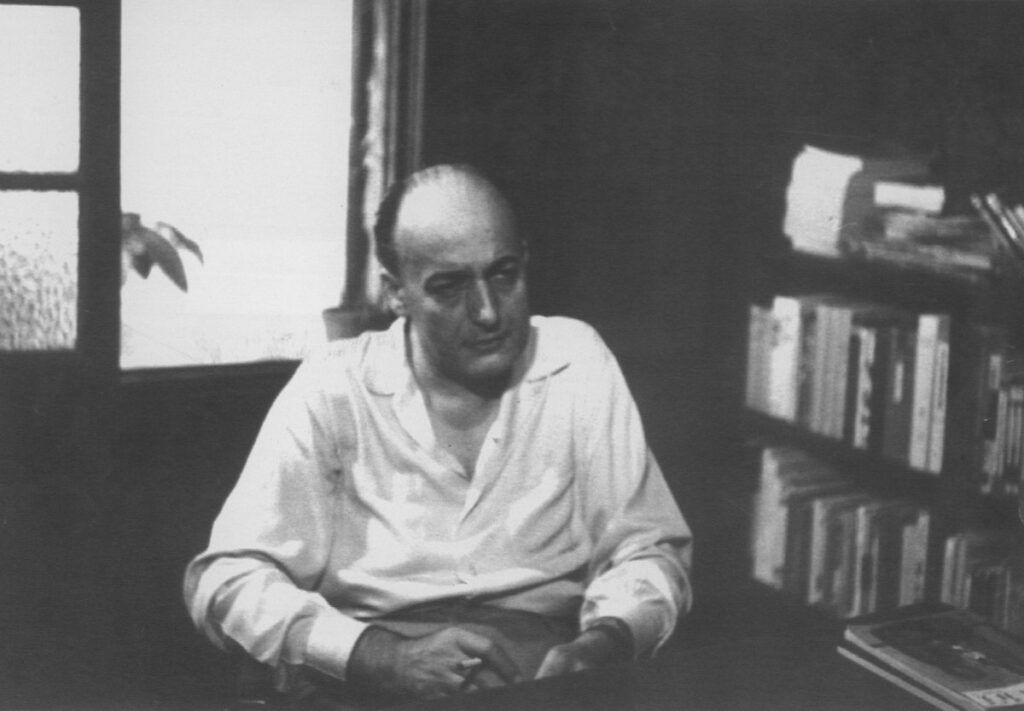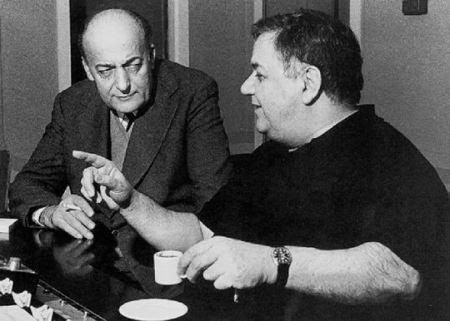By Billy Patramanis.
Nikos Gatsos was born on December 8, 1911, in the Peloponnese Peninsula in southern Greece, in the village of Asea in Arcadia. Gatsos would study in both Tripoli and later Athens.
By the time he moved to Athens to study philosophy, he was already fluent in both English and French and familiar with famous Greek poets.
Gatsos was familiar with the work of Kostis Palamas and Dionysios Solomos and was a fan of Greek folk songs, as well as the trends of European poetry at the time.
The knowledge Gatsos gained helped him in his pursuit of becoming a successful poet himself.
While in Athens, Gatsos became life-long friends with poet Odysseas Elytis.

Gatsos’ earliest published work came in the form of small but classical poems. He published his work in magazines Nea Estia (1931) and Rythmos (1933).
While publishing poems in magazines, Gatsos also enjoyed publishing critics, writing for magazines Makedonikes Imeres, Rythmos and Nea Grammata.
It was during the Nazi occupation of Greece in 1943 when he published his greatest work, Amorgos. It is well known that he wrote the poem in just one night, at a time when Greek citizens were at their most vulnerable to danger during WWII.
Amorgos was named after the island Amorgos, an island Gatsos never actually visited. It is a poem that has two potent themes throughout – loss and hope. Gatsos writes about these two themes in both a celebratory and agitated way.

The poem was a huge success for Gatsos, and the work was revered by Nobel Laureates Odysseas Elytis and George Seferis. Gatsos’ poem became highly inspirational and led to an increase in the post-war generation of Greek poets.
Despite all his success after its publication in 1943, it would become the only book he would publish during his renowned career. But despite this, Gatsos continued to publish poems in magazines, such as Elegya (1946) and The Knight and Death (1947). He also began writing songs.
Manos Hadjidakis, a famous Greek poet, set music to Gatsos’ poem Amorgos. It was highly successful and led to Gatsos becoming an influential figure for Greek composers, as a lyricist. Gatsos would also write for famous composers such as Theodorakis and Xarhakos.
READ MORE: On this day in 1925, Greek composer and theorist Manos Hadjidakis was born.

His writing became revolutionary, as Gatsos’ writing was that of beauty and clarity, themes not often heard in Greek pop music at the time.
Later in his life, Gatsos left the world of songwriting, becoming an inspirational literary figure for Greek poets. He would often hold lectures in Athenian coffee shops, where intellectuals and writers would visit to learn from him.
On May 12, 1992, Nikos Gatsos passed away in Athens and was buried in his village of birth as he wanted.
Gatsos will always be remembered as one of modern-day Greece’s finest poets and lyricists, as his poems inspired a new generation of Greek poets, while his songwriting revolutionised Greek pop music.
